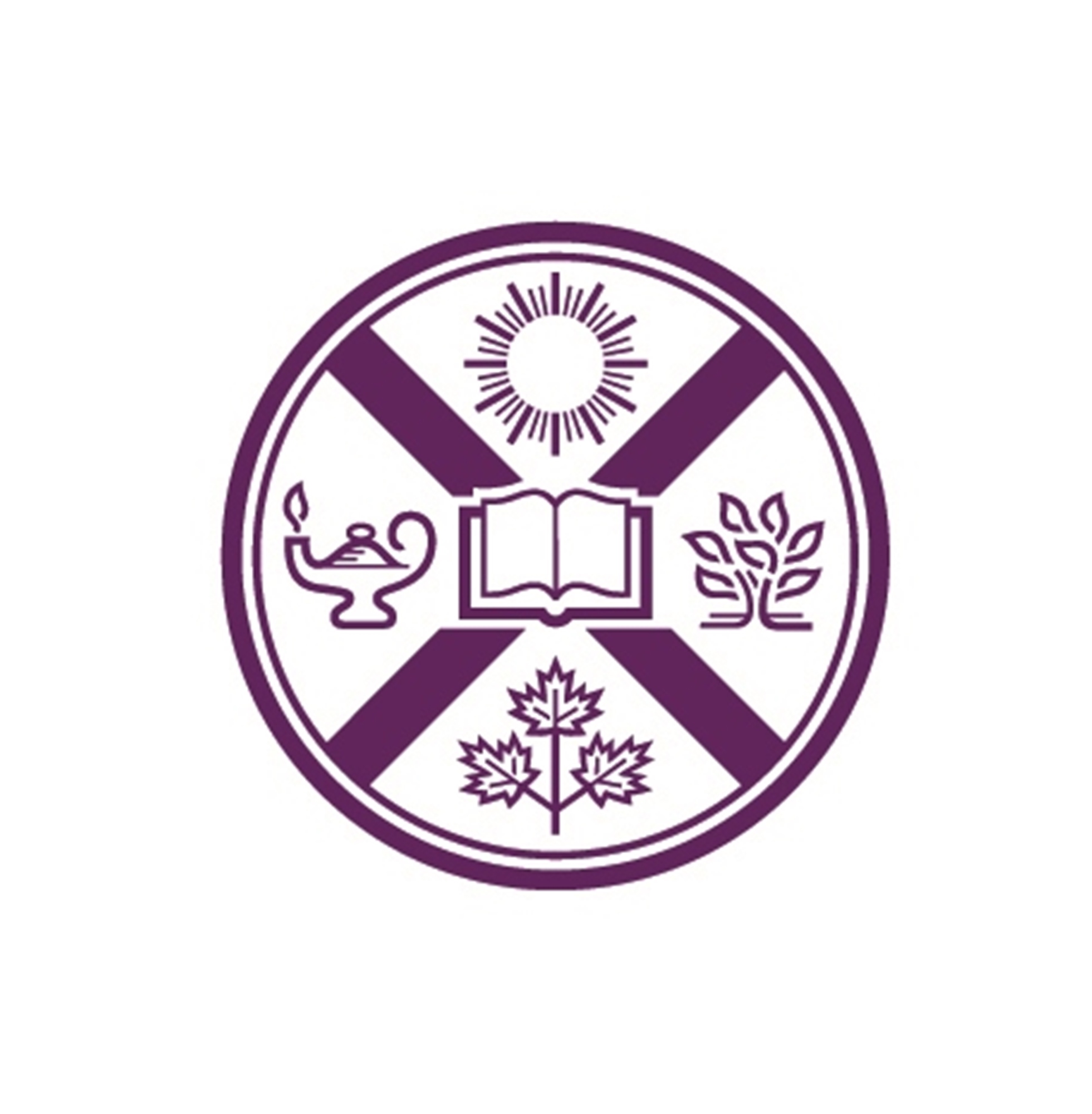Preparing Pastoral Music Leaders
The Master of Sacred Music (MSMus) provides graduate-level training in the art of leading sacred music. This program offers musical and theological depth, and will equip persons from any Christian tradition with the tools required to lead music for worship in congregations and other settings. Areas of specialty include organ, piano, composition, guitar, voice, and conducting.
The MSMus program consists of 20 credits from Emmanuel College and the Faculty of Music at the University of Toronto. Students must complete an integrative project practicum that assesses the student’s vocational leadership competency, as well as an oral exam that assesses the theo-musical competency of the student. The program may be completed purely on a part-time basis, and up to eight years are allowed for completion. Students are admitted in the Fall semester only.
Program Summary
Ten Level 1 and 2 courses, for a total of 20 credits, including core courses at both Emmanuel College and the University of Toronto’s Faculty of Music, as well as electives and additional requirements in each Level. The degree may be completed purely on a part-time basis, and up to eight years are allowed for completion.
MSMus Program Requirements
Entering Theological Education Grant
Terry Head Scholarship
Emmanuel College Music Series - Publishing Imprint
Learning Outcomes
Learning Outcomes
Upon completion of the Master of Sacred Music program you will be able to demonstrate:
- An informed musical sensibility in performance practice.
- Basic knowledge of Christian scripture, history, and theology.
- Competency in the skills, gifts, and arts of ministry appropriate for leadership in local congregations and other settings.
The MSMus Experience - Graduate Spotlights
Josette Blais-Jol
Music at the Global Institute of Theology, Costa Rica, 2014
It was a dark and sultry July night when I landed in San Jose, capital city of Costa Rica two years ago. Clutching my bags, I scanned an endless-seeming line of people holding up placards with the name of the person or group they were waiting for. None had my name or that of the Global Institute of Theology (GIT), the organism I had come to work with. After frantically walking around the waiting area, I borrowed a taxi driver’s cell phone to call the Institute! Apparently, I was not the only GIT participant arriving on the same plane. We all soon found each other and clambered into a mini-bus to be driven to our final destination.
In the summer of 2014, I joined an international group of young pastors-to-be at the Universidad Biblica Latinoamericana which housed the Global Institute of Theology for twenty-five glorious days . The participants came from Asia, Africa, the Middle East, Latin America, Europe and America; we would spend almost a month together, praying, studying, and singing. The university is perched on top of one of the highest points in San Jose, a city that is already at a high altitude. In the early morning, one can look down on the cloud cover over the city.
There are close links between Emmanuel College and the GIT. Peter Wyatt, the director of the academic programs, was once Principal at Emmanuel; his wife Joan led the worship teams. Fraser Williamson, a student at Emmanuel at the time, was also invited to join the Canadian contingent. GIT had approached the Master of Sacred Music program director, Swee Hong Lim to find a student willing and able to help with the music ministry. I gladly accepted the challenge.
Students came to worship right after breakfast and early in the evening before playing a friendly soccer match on a small field beside the residences. I led a group of ten wonderful singers, drummers and a pianist who came for a brief choir rehearsal before each period of worship. We bought three djembe drums and other percussive instruments to accompany our song. The drums called us to worship and enhanced the global music we sang. We felt the power of the drums around us. The power of the voices, the power of community, and the many cultures from around the world were united by percussion. The drummers were from South Africa, Lebanon and India. Each worship team introduced songs from their own countries. Some songs were even composed during our stay at the university. One of them claimed: Cristo no està muerto, el està vivo! (God is not dead, He lives) was sung to a lively rhumba rhythm. As we sang and swayed to the music, this central tenet of Christianity was affirmed. We were truly members of one global community, united in love and in music.
5 Questions:
Thank you for the questions it made me realize how privileged I was to be able to study at Emmanuel in the MSMus program.
1. What is your current work?
I’ve been working as organist and choir director at Immaculate Conception parish in Port Perry since 2014.
2. How has being in the MSMus Program helped you in your work?
The MSMus was vital for my work. It opened doors on theological and musical ideas I would never have encountered otherwise. It’s respect for Indigenous and world cultures was inspiring. The program also stretched my skills as a musician and writer.
3. What particular moments stand out from your time at Emmanuel and/or at the Faculty of Music?
I loved the choral conducting program. I also remember fondly singing with John Bell at Emmanuel College and in a workshop with C. Michael Hawn at a Hymn Society conference. It wasn’t about the technique of conducting as much as the approach to working with people and voices, singing with joy, with voices free of constraint.
C. Michael Hawn said: You never sing alone - there is always someone in the Universe who is listening and singing with you.
I was delighted to learn that John Bell is coming back in spring 2023.
4. Did the program prepare you to be a better leader at the local, regional or global level?
I’ve become a better leader because I listen more attentively to members of the choir, members of the congregation and to my pastor. I’m learning to adapt to our new pastor’s choice of music: no more Gregorian Chant but more contemporary liturgical music. I hope to introduce some jazz in my community.
5. Did you go on to further studies, or do you hope to continue studies in the future?
I’m [studying] jazz by following some jazz [teachers] online...I often have to ‘’fill in’’ at the organ and I hope to be able to improvise more freely with more complex harmonic progressions.
Matt Boutda
Sara Campbell
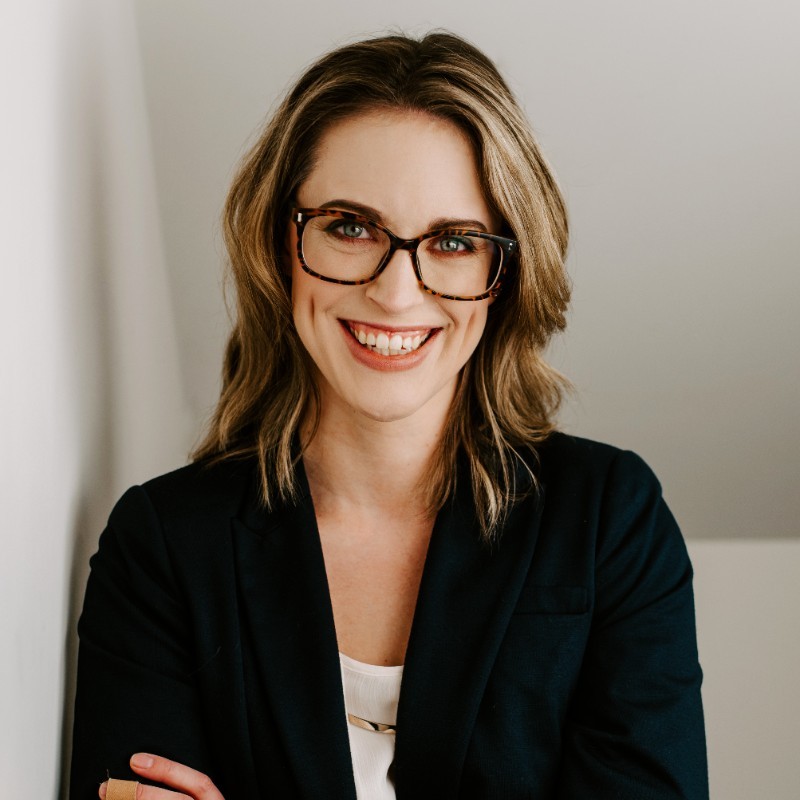
5 Questions:
1. What is your current work?
I am a full-time faculty member in the School of Performing Arts at Holland College in Charlottetown, PEI. I teach Music History, Voice lessons, improv ensembles, ear training (with a lot of conducting!!) and am the point person for anyone looking to audition for the program. We are a Berklee Global Partner school, one of three in Canada.
2. How has being in the MSMus Program helped you in your work?
The MSMus program provided me the opportunity to study a wide variety of music, gain professional experience and tools for leadership as a musician and an educator, and offered me opportunities in Toronto that I could only dream of on the East Coast! I have made so many connections with folks from the Faculty of Music since graduating.
3. What particular moments stand out from your time at Emmanuel and/or at the Faculty of Music?
Performing with the MacMillan Singers, getting involved with the Emmanuel College Student Society, and my practicum at St. Andrews United!
4. Did the program prepare you to be a better leader at the local, regional or global level?
Absolutely. While my path has currently led me away from congregational ministry, I do hope to find my way back in the future. I have gone on to complete a Certificate in Adult Education at UPEI, and countless hours of con-ed in education and voice pedagogy. I have completed a 6-month mentorship with one of the top S-LP's and Singing Voice Specialists in the country. I sing with an award-winning professional women's ensemble (we were featured at Podium in St. John's). I was *supposed* to present at the National Association of Teachers of Singing in Chicago this summer but was unable due to health reasons.
5. Did you go on to further studies, or do you hope to continue studies in the future?
Yes, the CAE, and the mentorship to become a Singing Voice Specialist. I have also completed training in DEI work within the context of music education.
Photo credit: Colton Curtis Photography
Christina Labriola
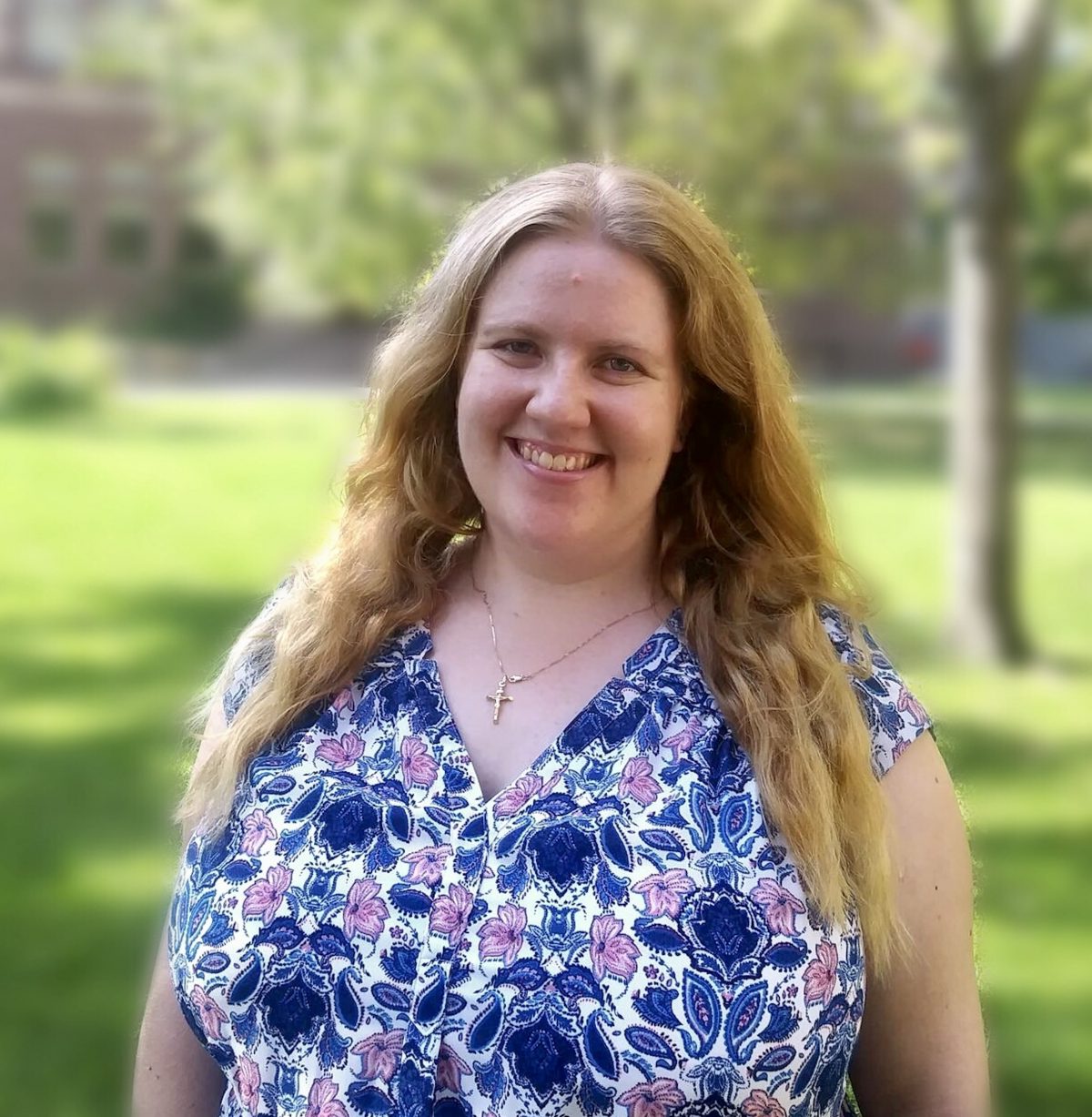
I attended Emmanuel from 2010-2013, where I completed the MSMus degree with a choral conducting specialization, supported by a SSHRC scholarship. Prior to this, I earned a B.Mus. with honours in piano from the Faculty of Music at U of T. Following my time at Emmanuel, and largely as a result of my experience in the program, I decided to pursue doctoral studies in theology and music. To that end, I earned a Th.D. in Pastoral Theology from Regis College with a doctoral thesis on music’s sacramental potential through the lens of theological aesthetics.
The way in which practical musical development was complemented by theological studies in the M.S.Mus. program inspired, informed, and shaped my practice as a liturgical musician, choral conductor, scholar, and person of faith. Opportunities for creative exploration, leadership, and spiritual, musical, and intellectual development were manifold in the M.S.Mus. program. A great many moments stand out, including: participating in the community’s weekly chapel worship, my first taste of theological studies (coming as I did from a musical background), and top notch conducting instruction and choral leadership of a 90-voice choir at the Faculty of Music. The flexibility of the program allowed me to pursue electives that were of interest personally and professionally, such as Theology of Music, Comparative Mystical Traditions, Accompanying, and The Oratorio. The program allowed me to blend musical praxis and theological reflection — a model which informed my doctoral studies and continues to shape my professional pursuits.
I am currently serving as music minister at St. Peter’s Catholic Church, cantor for the Archdiocese of Toronto’s Daily TV Mass program, the Artistic Director of the St. Michael’s Schola Cantorum, the Director of Music for the Office of Campus Ministry at the University of St. Michael’s College, and as Sessional Lecturer in Sacred Music at Our Lady Seat of Wisdom College. In recent years, I have served as Interim Music Director at Christ Church Deer Park Anglican, Choir Director at the Newman Centre Catholic Chaplaincy at the University of Toronto, Assistant Conductor of the Toronto Youth Choir (of the Toronto Children’s Chorus), and piano and voice instructor at Bloor West Music Studios. I have lectured and taught courses at St. Michael’s College, Emmanuel College, and Regis College. I have published on theological engagements with music and the arts and served as co-editor of the recent volume, Music, Theology, and Justice (Lexington, 2017). I am co-convenor, with Professor Michael O’Connor, of the Music and Theology Reading Group, based at St. Michael’s College. I am also involved in the Society for Christian Scholarship in Music, currently serving on the Publications Committee.
Deirdre (Dee) Lawrence
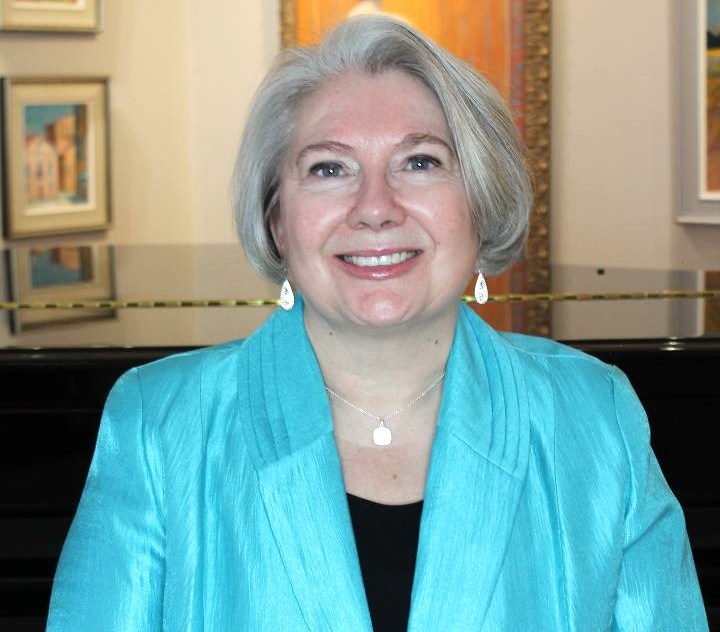
MSMus (2008-2010) Grad Profile
As one of the first two graduates of the MSMus degree program, I appreciated the opportunity to further develop my musical skills while broadening my understanding of how to use those skills more effectively in the context of faith and worship practices.
Highlights of my time spent at the Faculty of Music included voice lessons with the late Lynn Blaser, an extraordinary teacher who helped me to free my voice, refine my vocal technique, and unlock my potential as a singer – gifts which still impact my work to this day. A choral conducting class with Dr. Lori-Anne Dolloff provided me with additional insight into score preparation and the nuances of conducting, knowledge which I continue to use on a weekly basis in rehearsals with an adult community choir I conduct in Newmarket, Ontario.
In April 2010, during the last term of my studies, I was privileged to be involved in the performance of J.S. Bach’s “Mass in B minor” in Roy Thomson Hall with the Bach Festival Singers, accompanied by the Toronto Symphony Orchestra under the direction of Helmuth Rilling. Working with such a world-renowned, master conductor was an exceptional and transformative experience, one which I will remember for the rest of my life. Rilling brought an incredible level of knowledge, passion, and artistry to Bach’s music, and illuminated the beauty which is created when faith and music converge.
Studies at Emmanuel College led me to a deeper understanding of Biblical scriptures, the history of Christianity, and exposure to other faith traditions and worship practices. I received an excellent theological grounding in the use of music for worship and the importance of contextual considerations when choosing music
to be included in a worship service. Participation in, and planning of, weekly chapel services, where diversity and inclusivity were valued, served to strengthen worship leadership skills and further develop our gifts.
I was introduced to The Hymn Society in the U.S. and Canada by Dr. Fred Graham while a student at Emmanuel. I have served on the Executive of the Southern Ontario Chapter of this organization for the past seven years, three of which I spent as Editor of their newsletter Sine Nomine. I have attended HSUSC conferences in Winnipeg and Waterloo, and co-organized a hymn-writing competition this past fall with fellow MSMus graduate Mark Ruhnke for which over 40 submissions of new hymns were received from across Canada, the U.S. and West Africa. This spring, I coordinated and facilitated a hymn-writing workshop led by Dr. Lydia Pedersen and composer Jane Best for our SOCHS membership. Continuing in-person and online education with the Summer Institute of Church Music, and the Calvin Institute of Christian Worship keeps me engaged, thinking, and learning current and best practices.
Now retired from a 29-year career as a public elementary and secondary school teacher and private music studio teacher, I currently provide music and worship leadership in several northern York Region churches, and continue to do solo work as a vocalist and pianist, in addition to conducting the Encore Chorus of York Region. Formerly Chair of Worship at Knox United Church in Sutton, I now serve as their lay representative on Shining Waters Regional Council, and as a member of the Pastoral Relations Commission for SWRC. I also participate in SWRC’s Living into Right Relations Circle.
Last year, I completed my term as Administrator for the Newmarket Lions’ Music Festival, and now volunteer in the community as a Director on the Boards of the Georgina Centre for Arts and Culture, the Georgina Historical Society, the Friends of St. James Parish Hall Restoration Committee, and also serve as Vice Chair of the Heritage Advisory Committee for the Town of Georgina.
I still entertain thoughts of pursuing a doctoral degree in the future, but have not narrowed down an area of focus for those studies yet. I would also have to create time and space in my schedule for that to happen!
Jason Locke
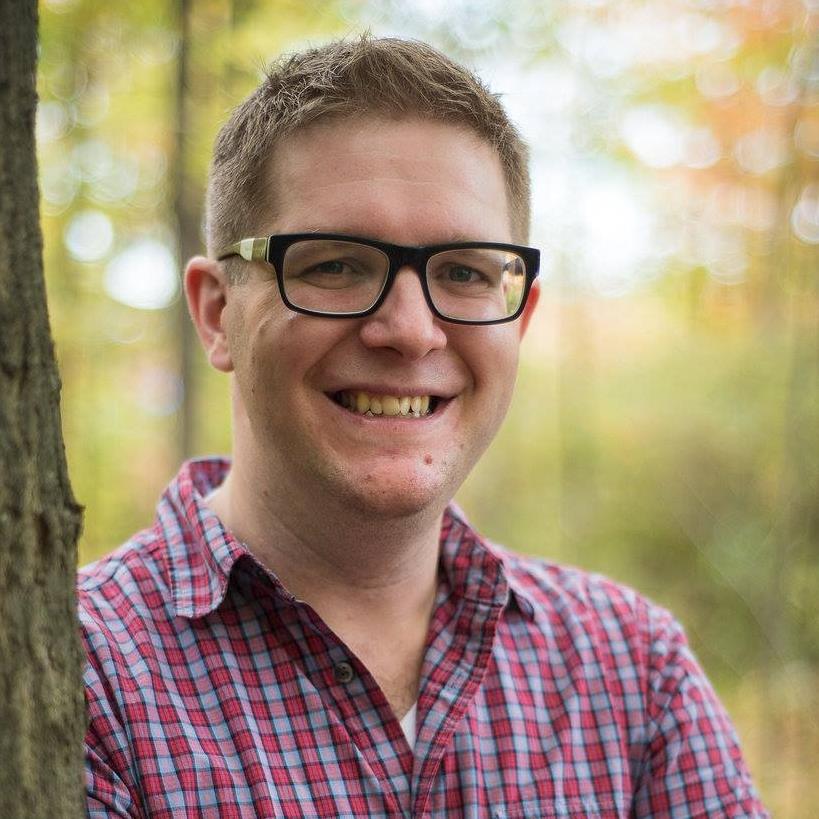
5 Questions:
1. What is your current work?
Currently, I’m in the Minister of Music at Islington United Church, in Etobicoke, Ontario. My role includes overseeing the music program, creating liturgy and co-leading in worship, bringing some measure of spiritual care to those with whom I minister, coordinating volunteers, overseeing paid music staff and working with everyone to ensure the programs are running as smoothly as possible with thought for how the programs can grow, change or be supplemented with new experiences.
2. How has being in the MSMus Program helped you in your work?
The MSMus program has some important, foundational courses which helped me to deepen into United Church theology. The private lessons component was very valuable, and the ‘generalist’ approach to other key parts of music ministry (like choral conducting and anthem selection) meant that I was able to do many things, to some degree.
3. What particular moments stand out from your time at Emmanuel and/or at the Faculty of Music?
My final jury at Church of the Redeemer was a wonderful experience, supported by many colleagues and faculty from Emmanuel. I was touched at how many people ‘showed-up’ – even folks I didn’t know that well. The community experience is strong at Emmanuel.
4. Did the program prepare you to be a better leader at the local, regional or global level?
The program helped me to unpack some of my less refined skills: I was able to deepen in organ playing (as a pianist), I started to have important conversations internally and with my peers around the importance of congregational song and what it means to select music of substance, and I was exposed to a network of professionals and mentors who I will carry with me for the duration of my career. All of this has led to my own success as a leader, in some obvious and some not-so-obvious ways.
5. Did you go on to further studies, or do you hope to continue studies in the future?
I have not done further studies at this point, however, I am planning to do further graduate level studies, at some point in the future. Though I am not sure what this will look like, yet, I’m grateful that my MSMus degree is a great springboard toward that ‘next-thing’.
Jason's work "Abide with Me" was one of the inaugural publication of the Emmanuel College Music series with GIA Publications.
Emily Morrison
5 Questions:
1. What is your current work?
Currently the organist at St. John's United Church in Alliston, as well as a private piano teacher and volunteer coordinator for the local Music Festival.
2. How has being in the MSMus Program helped you in your work?
It has better enabled me to contribute to the music work of the church. I am able to give input and guidance on hymn selections, as well as anthem selections. Also able to, occasionally, create and present a service during some of the Sundays when the minister is on vacation and/or leave.
3. What particular moments stand out from your time at Emmanuel and/or at the Faculty of Music?
The course work was motivating, interesting and inspiring. I enjoyed all of the academic classes immensely, had excellent professors and the class discussions were always interesting.
4. Did the program prepare you to be a better leader at the local, regional or global level?
Yes to all three: the Masters of Sacred Music program provides and encourages its students to attend conferences around the world, and Swee Hong Lim is excellent at networking with other church musicians and theologians across the globe, bringing global access to the students to the program. It also prepares you for the local and regional level by providing opportunities to work and/or attend workshops/presentations with organizations such as SOCHS (Southern Ontario Chapter of the Hymn Society) and SICM (Summer Institute of Church Music).
5. Did you go on to further studies, or do you hope to continue studies in the future?
I am undecided; I may, in the future, decide to further my studies. Right now I am happy in my current position, which has given me an opportunity to build a church music program from the ground up.
Saya Ojiri
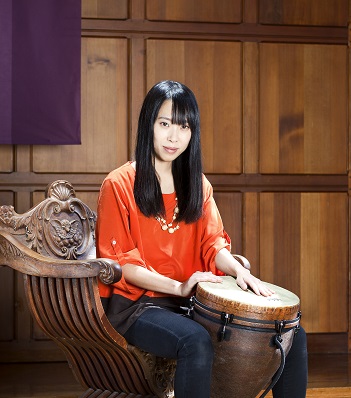
5 Questions:
1. What is your current work?
Music director in a local church in Toronto.
2. How has being in the MSMus Program helped you in your work?
It deepened my theological and liturgical understanding of church music, and strengthened my music and leadership skills.
3. What particular moments stand out from your time at Emmanuel and/or at the Faculty of Music?
- Meeting well-known scholars and church musicians at Emmanuel (John Bell, Michael Hawn, Dan Damon, etc.)
- Many opportunities to attend church music and liturgical conferences in the US and Canada
- Playing the largest organ in Canada at Metropolitan United Church and working as an assistant organist for three years
- African drumming class taught by a Ghanan teacher. It was one of the most wonderful experiences at the Faculty of Music.
4. Did the program prepare you to be a better leader at the local, regional or global level?
Yes. The MSMus program prepared me to lead music at many different levels - such as the 43rd General Council of the United Church of Canada (2018), Celebration of Ministry Service of the Shining Water Regional Council(2022), and the World Council of Churches conferences (2018, 2022).
5. Did you go on to further studies, or do you hope to continue studies in the future?
Yes. After the MSMus, I completed my PhD in Theological Studies at Emmanuel.
Rev. Fr. Peter Osuntope
Becca Whitla
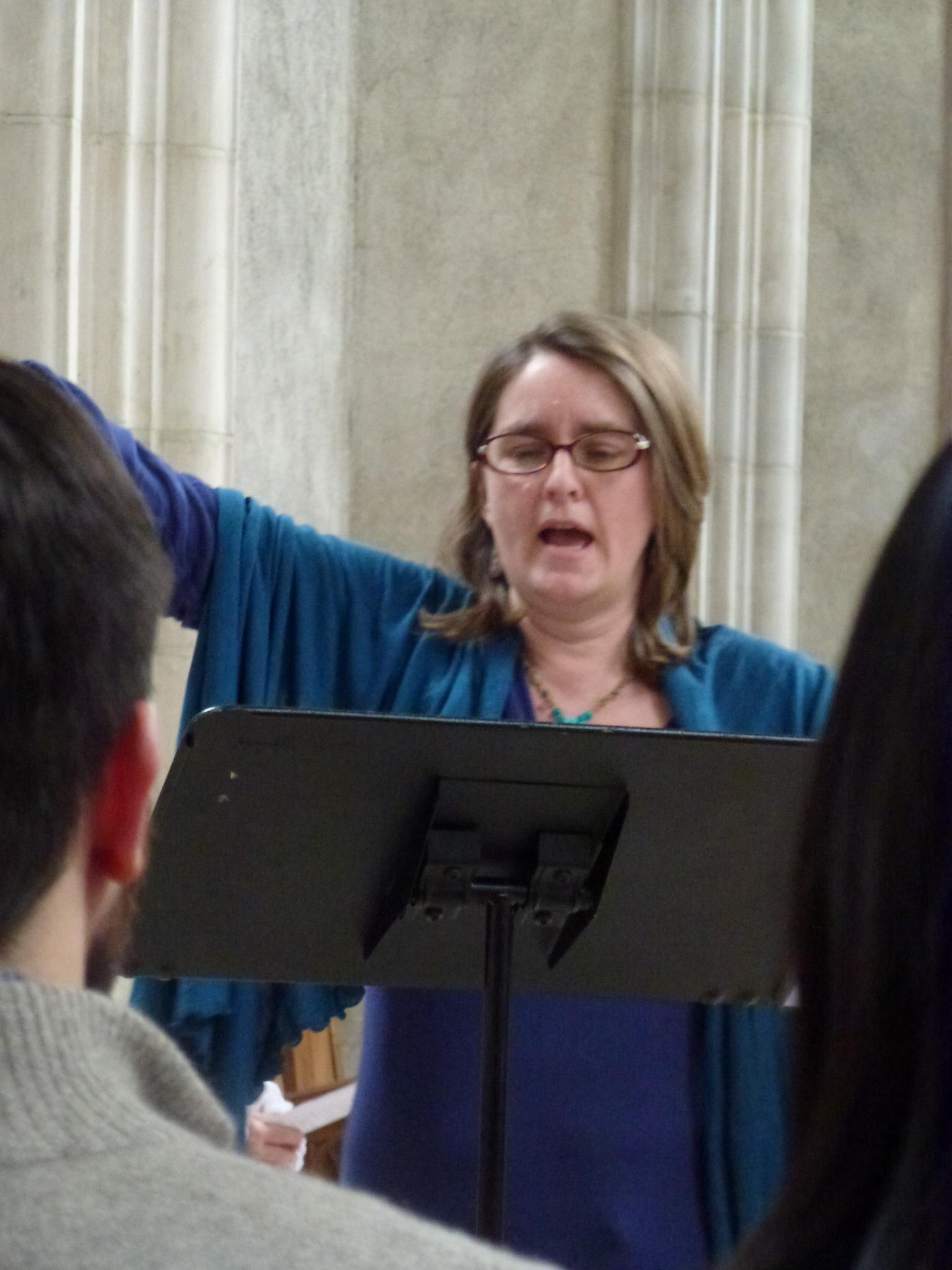
When I enrolled in the Sacred Music Program at Emmanuel, I hoped to spend one semester outside my own context. That dream came true in the spring of 2012 from January to April when I studied at the Seminary in Matanzas, Cuba–el Seminario Evangélico de Teología de Matanzas. Academically, I was able to work on a project on Cuban hymns written from the Cuban revolutionary experience – rigorous original work that has now been published. I also studied conducting with internationally renown conductor Maestro José Antonio Méndez who drew out my own musical conducting instincts in the very embodied pedagogies of Cuban choral conducting. I did some of my academic work by distance supervised by Emmanuel professors and I sang in two choirs and participated in a Masters’ seminar on liberation theology.
There are six words that sum up the kind of learning that I experienced: community-oriented, relational, intercultural, embodied, rigorous, and collaborative. My daughter and I lived with the seminary community and learned about life for Cuban students. (My husband and son came to visit for two weeks in the middle of the semester). We struggled to figure out how to buy toilet paper and food for our temporary household and relied on our fellow students to help us cope. They also nourished us with their friendship and good humour. I greatly improved my Spanish and of course my then 13 year old daughter easily surpassed me; by the end of our time there, I sent her to get groceries to save myself the embarrassment of mis-communicating. The most difficult barrier to intercultural learning that I encountered was the enormous difference in wealth between the two countries. Yet, I experienced profound and generous hospitality over and over again: my friends, professors and staff opened their hearts and homes to us. I remain grateful for the financial support from the Catherine and Murray Corlett and the Joyce and Garth Legge scholarships which made it possible.
This community, relational, intercultural, embodied, rigorous, and collaborative learning also encapsulates my whole experience of being at Emmanuel for the Sacred Music degree. Subsequently, as a doctoral student working with Professor Swee Hong Lim, I had the privilege of sharing some of the music I learned in Cuba with the TST Choir. I also put my intercultural learning to good use when I had the additional opportunity to travel to Jamaica where I participated in an international conference on worship sponsored by the Council of World Mission. Most recently, I returned to Cuba with Professor Néstor Medina where we co-taught a course on theology, culture and worship in Matanzas. The original opportunity to learn in another context helped make these other projects possible!
5 Questions:
1. What is your current work?
I am the Professor of Practical Ministry and Dr. Lydia E. Gruchy Chair in Pastoral Theology at St. Andrew's College, Saskatoon
2. How has being in the MSMus Program helped you in your work?
After I completed by MSMus, I went on to do a PhD. The MSMus inspired me to further academic students and helped me find a voice to articulate things I had been experiencing in my music ministry. I
3. What particular moments stand out from your time at Emmanuel and/or at the Faculty of Music?
I did two major choral recitals: Hymnody of Earth -- a cantata by Malcolm Dalglish and an Eclectic Mass featuring Joy Kogawa. They were amazing experiences and also significant musical events in the city. Hymnody of Earth received arts council funding and was sold out.
4. Did the program prepare you to be a better leader at the local, regional or global level?
Most definitely. It helped me fine tune my musical and academic skills both of which I continue to use in my work. When I did my PhD, I worked as research fellow for Swee Hong. He gave me amazing opportunities for teaching, attending conferences etc. He was an excellent mentor. I still use many of the techniques, ideas etc. that he taught me in my own teaching!
5. Did you go on to further studies, or do you hope to continue studies in the future?
I did a PhD in pastoral/liturgical studies. I have published a book (Liberation (De)Coloniality, and Liturgical Practices: Flipping the Song Bird, numerous articles, and am co-editing a second book with Néstor Medina (Decolonizing the Church Theology and Ethics in Canada).
Becca Whitla Publishes Book


